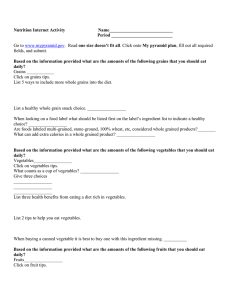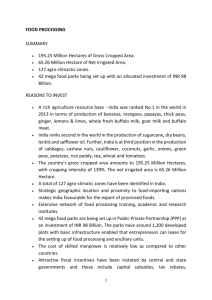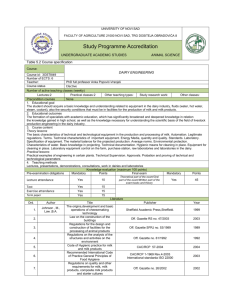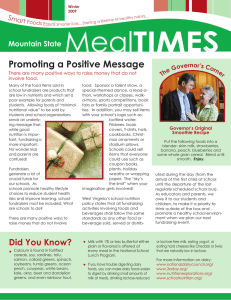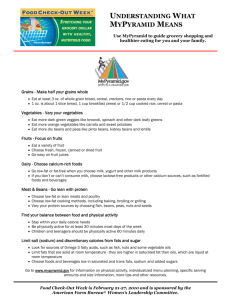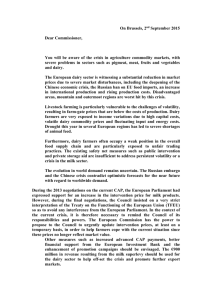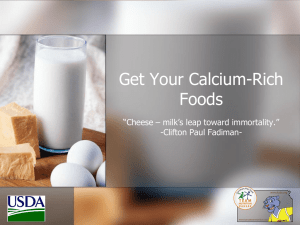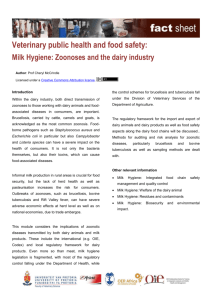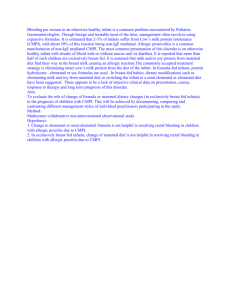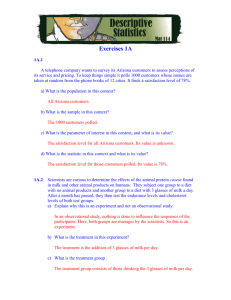lesson 27 diet and disease protection
advertisement
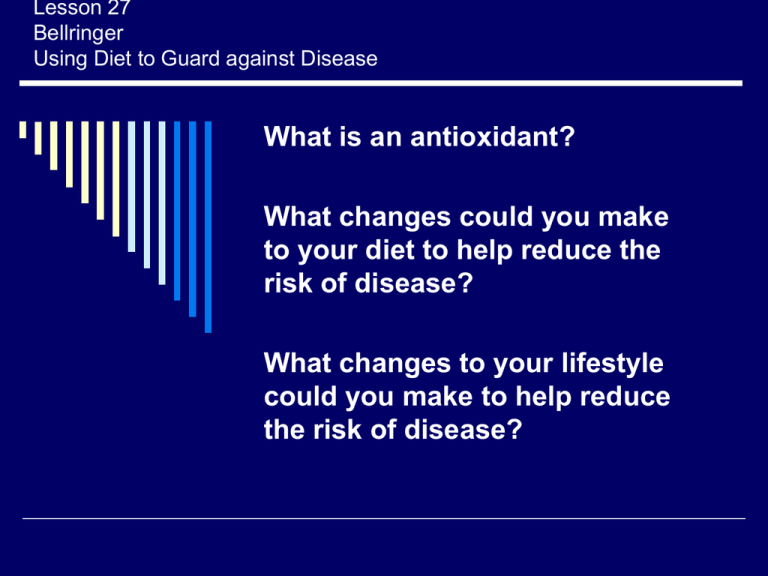
Lesson 27 Bellringer Using Diet to Guard against Disease What is an antioxidant? What changes could you make to your diet to help reduce the risk of disease? What changes to your lifestyle could you make to help reduce the risk of disease? Health Goal I will follow a healthy diet that reduces the risk of disease Tips to reduce the risk of cancer Avoid obesity Eat several servings of fruits and vegetables and fiber rich foods every day Limit fat intake Limit smoked, salted, or nitrate-cured foods Do not drink alcohol How can you limit your fat intake? Limit meat Broil, bake or steam food Trim the fat Drain the grease Limit eggs Limit hot dogs and bologna Substitute fruits and low-fat yogurt for desert Eat turkey dogs and make turkey chili to limit red meat Substitute nonfat or low-fat dairy like frozen yogurt for ice cream Substitute fruits or vegetables instead of potato chips Why is it good to include flax, soy, canola, olive, and fish oils in your diet? They have unsaturated fats which help prevent heart disease, lower LDL (bad cholesterol), and increase HDL (good cholesterol) Look at the chart on pg.305 Answer the questions in your journal You can do it! Tracey Wygal 300lbs to 180lbs How can you do it? Follow the food guide pyramid. Whole grains A variety of colorful vegetables A variety of fruit Low-fat or fat-free milk and milk products Lean meats, beans, eggs, and nuts What is osteoporosis? Brittle bones Who is more likely to get osteoporosis? females How can you avoid osteoporosis? Eat yogurt, drink milk, eat cheese, and leafy green vegetables Engage in weight-bearing exercise Avoid smoking Take medication if told to by a M.D. What is diabetes? Pg.307 What are the types of diabetes? Type I: born with it and unable to produce insulin Type II: caused by excessive weight gain increased insulin resistance of the body Gestational: pregnant women have hormones that cause insulin resistance Did you know? Due to the obesity problem in the U.S. more adults and even teens are developing type II diabetes Raise your hand if you are allergic to anything? Keep you hand up if you are allergic to a food product. Would you like to share? What types of food allergies and intolerances are there? Milk Shellfish Fish Eggs Peanuts and other nuts Gluten MSG Sulfites What happens to someone who ingests food that they are allergic or intolerant to? Severe illness Death Diarrhea Swelling Sneezing Itching nausea Where can you get more information? Washington State Dairy Council Nutrition Explorations: Kids' Nutrition at Its Best National Dairy Council – Home Why Milk? I Love Cheese! 3-A-Day American Dairy Association The Alliance for a Healthier Generation Homework Read lesson 28

